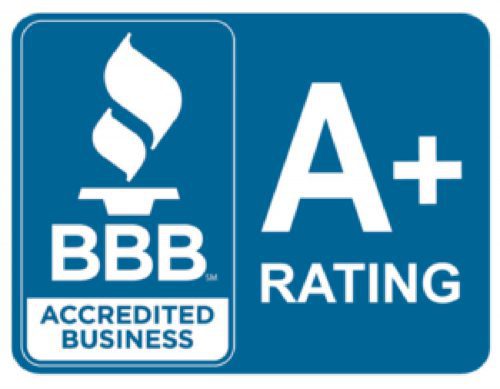Shoulder Dystocia
Shoulder dystocia, which happens in 0.2 to 3% of pregnancies, occurs when one or both of a baby’s shoulders becomes stuck inside of the mother’s pelvis during labor. Usually, the front shoulder will get stuck behind the public bone, however, the back shoulder could also get stuck behind the tail bone. This condition may also arise because the mother’s pelvis is abnormal or small, the mother is overweight or has gestational diabetes, the baby is late, there are multiple babies, or the mother was induced or gets an epidural. It is a birth injury; dystocia means a tough or slow birth or labor.
Unfortunately, complications, like excessive bleeding in the mother, loss of oxygen to the baby’s brain and subsequent brain damage, tearing of a mother’s tissues such as her vagina, cervix, uterus, or rectum, and injuries to a baby’s hands, arms, or shoulders, may happen. The chance of that is low, since less than 10% of babies born with shoulder dystocia suffer from permanent complications.
A doctor will typically only be able to see if shoulder dystocia is going to occur after labor has already begun. It occurs in the second stage of the birthing process when the baby’s head has already emerged. Typically, shoulder dystocia will heal within six months to a year, and rarely is it serious. However, in the cases that it is more severe, extensive treatment may be required.
Symptoms of Shoulder Dystocia
If an injury occurs after shoulder dystocia, then symptoms may include the following:
- A claw-like hand
- Light paralysis of the limb that was affected
- Nerve damage as well as pain
Other types of birth injuries can cause these same or similar symptoms, so going to a provider for the correct diagnosis is key.
Treatment for Shoulder Dystocia
Shoulder dystocia can be prevented if a doctor monitors the mother in labor and performs a C-section instead of a natural birth. If this does not happen, and the birth occurs naturally, then shoulder dystocia could arise. There are treatment options for shoulder dystocia depending on whether the condition is mild or severe.
If it’s mild, it could be resolved with some gentle massage or physical therapy, such as range of motion exercises. If it’s severe, your baby may have to undergo surgery.
How Do I Know if Medical Malpractice Caused Shoulder Dystocia?
Since shoulder dystocia is difficult to prevent or predict, proving that medical malpractice occurred could be very tough. However, it is possible to prove with a lawyer’s help and the right evidence of malpractice.
For instance, if your doctor misjudged the situation while you were in labor and didn’t perform a C-section at the proper time, then you could possibly claim malpractice. Additionally, they may be responsible for your baby’s birth injury if they used too much force with their hands, forceps, or another instrument when delivering your baby.
If they failed to treat you for other conditions and that led to your baby’s shoulder dystocia, then that could count as medical malpractice. Truly, there’s no way to know unless you pursue a case with the help of a birth injury malpractice lawyer.
Unfortunately, most medical malpractice cases are denied before they can ever reach the courts because the legal system makes it difficult to sue doctors. With an experienced lawyer on your side, however, you have a much better chance of getting the compensation you deserve.
How Much Will I Receive From a Shoulder Dystocia Settlement?
If you can prove medical malpractice, then you could possibly win damages for things like:
- Medical bills
- Loss of companionship and enjoyment of life
- Pain and suffering
- Future medical care
- Loss of earning capacity
Your settlement will depend on the severity of the injuries and how long your baby had to undergo treatment. For example, if the shoulder dystocia was treated with massage and physical therapy for a few months, then your settlement will likely be lower. But if your baby also experienced brain damage, that could cause lifelong issues and you would likely get a higher settlement to cover future medical bills and their loss of earning capacity, plus pain and suffering. Your lawyer will let you know what damages could apply in your case.
Settlement Offers in a Shoulder Dystocia Case
There’s no way of knowing how high your settlement is going to be. Even if your lawyer has worked on shoulder dystocia cases before, they can’t predict how negotiations are going to play out.
When you get in touch with your birth injury lawyer, they will ask you details about your case and have you send along any evidence you have, such as witness statements, medical records, receipts from your medical bills, and photos of your injuries and your baby’s injuries. They will contact your healthcare provider for your records if you do not have them.
Then, your lawyer will reach out to the defendant, such as the doctor, and attempt to reach a settlement offer. You can reject that offer if you believe it’s not enough and ask your lawyer to request more. If you and the defendant cannot agree on a suitable number, then your lawyer will take the defendant to court. If you have to go to court, don’t fret: Your lawyer will do the bulk of the work so you can focus on taking care of your little one at home.
Why Contact a Birth Injury Lawyer?
A birth injury lawyer has your best interests in mind. They will negotiate with the defendant for you and fight to get you your compensation. You won’t have to waste time or energy working to get what’s rightfully yours.
Shoulder Dystocia Birth Injury Attorneys
If your baby has a mild to severe case of shoulder dystocia and you believe medical malpractice is to blame, reach out to a birth injury lawyer today. Gilman & Bedigian will be by your side throughout the entire legal process and get you the compensation you deserve.
Contact Gilman & Bedigian 24/7 for a free consultation at (800) 529-6162.











